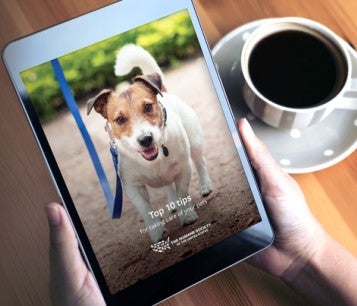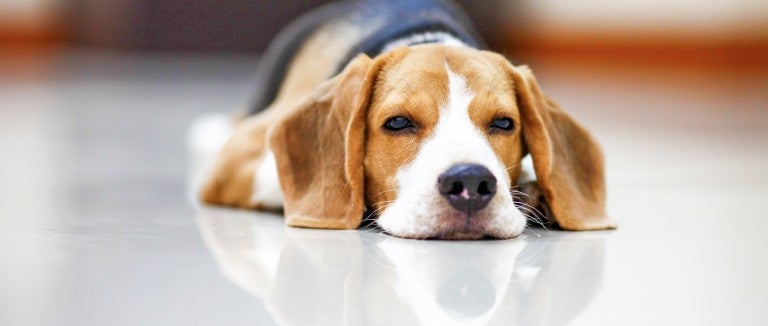Pets get into everything and, like babies, tend to explore the world with their mouths. Make sure they stay safe by checking your home and yard for plants that could cause an emergency vet visit. It's also important to familiarize yourself with what table scraps are OK to share and which to avoid!
Toxic treats
If you find yourself wondering, "What human food can my dog not eat?" while trying to resist your pet's begging face, be sure to check before giving in. While you can feed your dog some human food, certain things can actually be very dangerous for pets. We've highlighted some of the most common foods that can be dangerous to animals:
- Alcoholic beverages
- Apple seeds
- Apricot pits
- Avocados
- Cherry pits
- Candy (particularly chocolate—which is toxic to dogs, cats, and ferrets—and any candy containing the toxic sweetener Xylitol)
- Chives
- Coffee (grounds, beans, and chocolate-covered espresso beans)
- Garlic
- Grapes
- Gum (can cause blockages and sugar-free gums may contain the toxic sweetener Xylitol)
- Hops (used in home beer brewing)
- Macadamia nuts
- Moldy foods
- Mushroom plants
- Mustard seeds
- Onions, onion powder and onion flakes
- Peach pits
- Potato leaves and stems (green parts)
- Raisins
- Rhubarb leaves
- Salt
- Tea (because it contains caffeine)
- Tomato leaves and stems (green parts)
- Walnuts
- Xylitol (artificial sweetener that is toxic to pets)
- Yeast dough
This is not an exhaustive list; any decision to provide your pet with food not specifically intended for animals should be discussed with your pet’s veterinarian or a board certified veterinary nutritionist.
Sign up to receive our exclusive e-book full of important information about caring for your pet, including training techniques and answers to frequently asked questions.

Poisonous plants
Poisonous plants may cause reactions ranging from mild nausea to death. Certain animal species may have a peculiar vulnerability to a potentially poisonous plant. Cats, for instance, are poisoned by any part of a lily.
View List of Commonly Poisonous to Pets Plants
If you suspect your pet has ingested a toxic substance, contact your local veterinarian immediately or call the ASPCA’s 24-hour emergency poison hotline at 1-888-426-4435.

